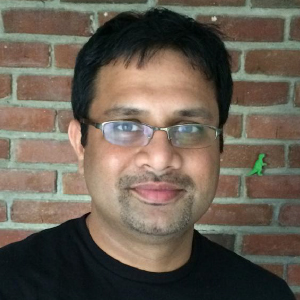Following the central dogma, one can in principle target a gene at the DNA, RNA or protein levels. Targeting at the DNA level is permanent and from a therapeutic standpoint can be potentially curative, but targeting at the RNA and protein levels, while transient, can enable more tunable and reversible perturbations. For programmable DNA targeting, the recent advent of RNA-guided effectors derived from clustered regularly interspaced short palindromic repeats (CRISPR)–CRISPR-associated (Cas) systems have dramatically transformed our ability to engineer the genomes of diverse organisms.

As unique factors capable of co-localizing RNA, DNA, and protein, tools and techniques based on these are paving the way for unprecedented control over cellular organization, regulation, and behavior. However, efficaciously achieving these objectives will entail development of aspects including and beyond the CRISPR-Cas systems.
In this seminar, I will describe some of our ongoing efforts in this regard, and in particular some of our recent progress towards also enabling programmable targeting at the RNA and protein levels.
Prashant Mali is a faculty member in the Department of Bioengineering at the University of California San Diego. His research is in the fields of synthetic biology and regenerative medicine, with a long-term focus on developing tools for enabling gene and cell based human therapeutics. In this regard, he developed the use of CRISPRs and ADARs as powerful tools for DNA and RNA editing, with wide applications in both basic biology and human therapeutics.
Mali received his Bachelor’s and Master’s degrees in Electrical Engineering from the Indian Institute of Technology Bombay, a doctorate in Biomedical Engineering at the Johns Hopkins University, and a postdoctoral fellowship in the Department of Genetics at the Harvard Medical School.
He has received multiple awards including the Siebel Scholar Award, the Burroughs Wellcome Career Award, the March of Dimes Basil O’Conner Scholar Award, the Kimmel Scholar Award, Kavli Frontiers of Science Fellow, Young Alumnus Achiever Award from the Indian Institute of Technology Bombay, and election to the American Institute for Medical and Biological Engineering College of Fellows.